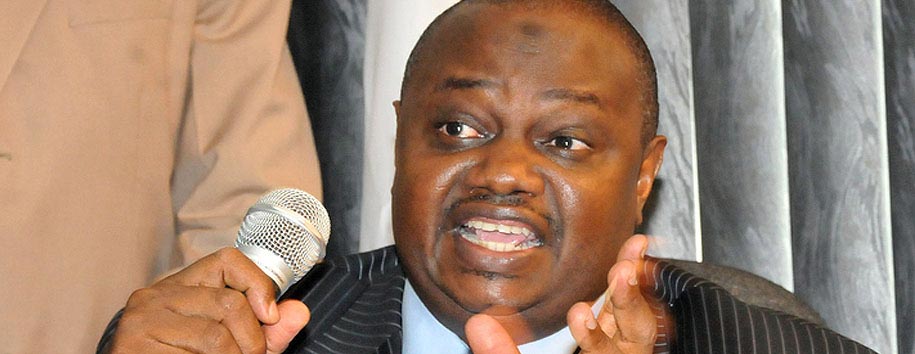The Economic and Financial Crimes Commission (EFCC) says it is broke and cannot pay salaries of staff and services of prosecutors to carry out operational functions.
The EFCC Secretary, Mr. Emmanuel Aremu, made the statement Monday December 18th in a public hearing on A Bill for An Act to Establish the Nigeria Financial Intelligence Agency, NFIA, 2013, organised by the Senate Committee on Drugs, Narcotics and Economic Crimes.
Aremu pointed out that the financial challenges facing the anti–graft agency were because of ‘the non-remittance of appropriated funds for the agency’ by the federal government over the months.
He said he had earlier informed the lawmakers of the precarious financial stimulation of the agency when they went on an over-sight visit it the headquarters in Abuja few weeks ago.
Aremu said:
“I could recollect when the committee paid an oversight visit we did make our financial position known to the committee that as at now EFCC does not have N2 million in its accounts. We have been complaining that no money has been released to us for operations. As at now we don’t have up to N2 million.
If we can afford to pay salary this month (December), that is all. That is the position under which we operate.”
He spoke at a one-day public hearing organized by the committee on a bill seeking to establish the Nigerian Financial Intelligence Agency (NFIA).
The EFCC opposed the proposed legislation which seeks to establish NFIA as an independent financial intelligence system for the country by removing it from the commission where it is presently domiciled as a unit.
He argued that the Financial Intelligence Unit (FIU) currently under the EFCC is discharging its responsibility efficiently without complaints from financial institutions, arguing that if granted an autonomous status, the FIU would become exposed to desperate politicians who were capable of securing court injunctions to frustrate its operations.
“FIU, in most climes of the world, is run as a secret operational centre at the background of a major body like EFCC as it is presently in Nigeria”, Aremu said.
He also went on to say, ”FIU as intended by the bill should not be exposed to the public as a separate body on its own. It should be kept at the background as it is in most climes of the world.”
Representative of the National Drug Law Enforcement Agency (NDLEA), Mr. Joseph Sunday, noted that the FIU as presently structured lacked legal status.
Director, Legal Services, Central Bank of Nigeria (CBN), Mr. Amusa Ogundana, who represented the CBN governor, Malam Sanusi Lamido Sanusi, said the apex bank is in support of the establishment of NFIA even though with some changes to the bill.
Similarly, Mrs Blessing Egbefor representing the National Agency for the Prohibition of Trafficking in Persons (NAPTIP) said the bill, when passed into law, would strengthen the fight against financial crimes.
Chairman of the Committee, Senator Victor Lar, said the National Assembly is driven only by national interest and considerations not individual and parochial interests.
Chairman of the Committee, Senator Victor Lar, said the National Assembly is driven only by national interest and considerations not individual and parochial interests.







